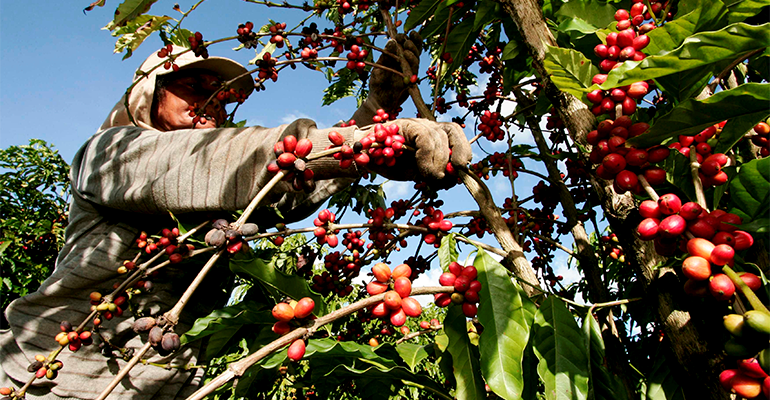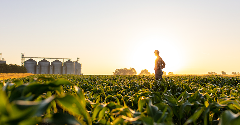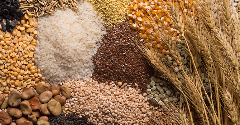News
Coffee smallholders more sustainable than large-scale producers: Fairtrade
18 Dec 2024Smallholder coffee plantations in Latin America are more climate-friendly than large-scale operations, according to an environment-focused study by Fairtrade Foundation.

The new Fairtrade study, Understanding the Climate and Environmental Impacts of Smallholder Coffee Farming, investigated existing academic and sector-based research regarding the environmental sustainability of small-scale coffee production in five Latin American countries: Brazil, Colombia, Peru, Nicaragua and Honduras.
Fairtrade Foundation, the organisation behind the sustainability certification and labelling system, compared findings with large-scale production. “It showed that small-scale coffee production in Latin America is, on average, more environmentally friendly than large-scale production,” Max Milward, Fairtrade Foundation’s sustainable sourcing manager for coffee, told Ingredients Network.
“Large plantations in the region often produce coffee using unshaded monoculture, mechanisation and chemical inputs, but the situation on small-scale coffee farms is often quite different,” said Milward. Small-scale coffee producers in Colombia, Peru, Nicaragua and Honduras generally use less energy than larger plantations because farms are often less mechanised.
Promoting small-scale production
Small-scale coffee farmers produce around 60% of the world’s coffee. While the numbers indicate that coffee production favours small-scale operations, more can be done to increase the presence of this manufacturing method in the food industry.
Fairtrade International, which works with small-scale coffee farming co-operatives and does not certify plantations, has certified over 800,000 smallholder coffee farmers in over 600 organisations across 32 countries.
Agroecological practices are highlighted as a core way to improve the food security of smallholder coffee farmers. “Agroecological practices enhance environmental sustainability through reducing GHG emissions and storing carbon, using less water and boosting biodiversity on smallholder coffee farms,” said Milward.
Agroecological farming enables smallholders to use fewer chemical inputs and grow more diverse crops. “This can create considerable input savings for small producers, who can also rely on a diversified income and improve their households’ food security, which is the best way to face climatic changes and price shocks,” Milward added.
Agroforestry, where shade and other trees are planted alongside coffee plants, also plays a vital part in the sustainability of coffee growing. The nature-enriching production method can address the environmental, social and economic challenges smallholder coffee farmers face in Central and South America while significantly contributing to climate adaptation and mitigation.
Smallholder coffee farmers in Honduras, Nicaragua, Colombia and Peru mainly practise diversified shaded agriculture. Adopting this coffee production approach helps preserve and enhance coffee, storing carbon and conserving soil and water.
Fairtrade has adopted agroecology as its framework for sustainable agriculture. As part of its advocacy for the production method, the organisation states it is working to support coffee farmers to adopt agroecological practices.
R&D: The future of coffee production
Fairtrade’s findings may impact how large and small-scale farmers approach coffee production in the coming years. Research and development (R&D) is a crucial part of implementing agricultural methods that prioritise a sustainability lens.
“It demonstrates why small-scale coffee farmers urgently need fair terms of trade so that they can cover their production costs and earn sustainable livelihoods,” said Milward. Farmers living on the frontline of climate change are already seeing how changing weather patterns are having devastating impacts on their ability to grow the crops they depend upon.
“Without fair prices and long-term contracts, many producers will not be able to continue farming in the future, leading to increased poverty in many parts of the world and threatening the availability of food staples such as coffee,” he added. The ability of producers to earn a living income through higher prices for their produce is expected to be a key enabler and a precondition for ensuring effective climate action.
“Smallholder coffee farmers’ fundamental role in climate adaptation and mitigation should be acknowledged across the value chain,” Milward added. Fairtrade hopes that different players, including commercial partners, producer organisations and its organisation, can collaborate to face global environmental challenges and support sustainable coffee production in the future.
Recommendations for producers
“We are faced with challenges of a greater complexity than ever before,” said the sustainable sourcing manager. For those manufacturers and brands using coffee as a key ingredient in their food products, actions centre around the importance of sustainable operations. “We’d urge all coffee businesses, from coffee roasters to café brands and retailers, to consider responsible sourcing.”
Fairtrade has launched a Shared Impact initiative that allows brands and retailers to build closer ties to a smaller pool of coffee, cocoa and banana producers. It is designed to provide better supply chain insights for businesses and longer-term commitments for producers, enabling them to invest more strategically in the salient risks in their supply chains, such as climate and living incomes.
Through its impact-led model, Shared Impact, Fairtrade strives to provide businesses with the bridge to connect both ends of the supply chain, providing transparency, security, and the opportunity to collaborate on risk and facilitating compliance with upcoming due diligence legislation.
“Producers who benefit from the full package of Fairtrade Standards, pricing, Premium and programmes have been found to be more resilient in times of global crisis,” said Milward. On average, the organisations found households from Fairtrade-certified producer organisations were less affected by COVID-19 than those at non-Fairtrade-certified producer organisations (36% versus 48%, respectively).
Programmes like the Fairtrade Alliance for Climate Smart Supply Chains in Africa (FACSCA) have been designed in partnership with producers to help increase their knowledge of sustainable agriculture land management practices. It strives to boost productivity and reduce water consumption and carbon footprints.
“The climate crisis is putting in jeopardy the future of farming and we are facing multi-faceted problems in our global supply chains,” Milward said. “We must push forward on fair prices and equitable power structures and increase the pace of change.”
Related news

Global consumers enjoy food less and perceive it as less healthy
20 Mar 2025
Enjoyment of food and its perceived healthiness is dwindling among most global populations, according to findings from Gallup and Ando Foundation/Nissin Food Products.
Read more
Seafood set to ‘dethrone’ poultry as protein growth king
19 Mar 2025
Seafood is poised to surpass poultry as the leading contributor to global protein supply growth this year, according to Rabobank’s latest protein outlook.
Read more
Have scientists discovered a new tool to measure UPFs?
19 Feb 2025
Researchers have developed a new scoring system and database, compiling over 50,000 food items, of which over 1,000 are classified as ultra-processed.
Read more
Most consumers lack trust in AI, but supplement users are ready to embrace the technology
14 Feb 2025
A survey of UK and US consumers found that most supplement users are willing to let AI make decisions on their behalf, but they also demand greater transparency.
Read more
Disruptor brands spearhead sustainable solutions
11 Feb 2025
Manufacturers, big and small, sharpen their focus by providing sustainable products and services centred on comprehensive and sustainable approaches to traditional methods.
Read more
RSPO prepares for next stage of sustainable palm oil production
6 Feb 2025
The Roundtable on Sustainable Palm Oil (RSPO), a global standards and governance body, is advocating for stronger regulations and frameworks, and taking action to plug supply chain and traceability interruptions.
Read more
US wins GMO corn trade dispute with Mexico
24 Jan 2025
A Mexican decree banning imports of genetically modified (GM) corn for human consumption has been overturned in what has been hailed as a victory for US exports.
Read more
Kraft Heinz, Mondelēz, Coca-Cola, and Nestlé accused of marketing ‘addictive’ UPFs at children
15 Jan 2025
Major food manufacturers have been hit with a first-of-its-kind lawsuit alleging that they specifically engineer their ultra-processed foods (UPFs) to be addictive, and that they market the products towards children.
Read more
Is it time for a global definition of whole grain?
30 Dec 2024
Amid a lack of harmonisation, the European Food Information Council (EUFIC) is calling for a global definition of the term whole grain to end consumer confusion.
Read more
Coca-Cola waters down environmental targets on packaging, sustainable sourcing
24 Dec 2024
The Coca-Cola Company has changed its targets relating to water, packaging, climate, and agriculture, drawing fire from campaigners.
Read more